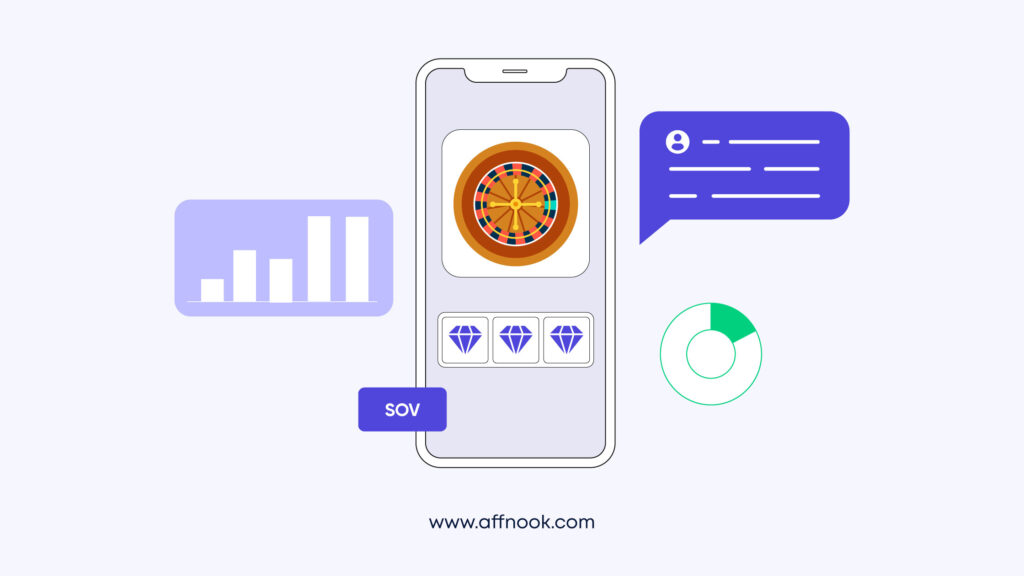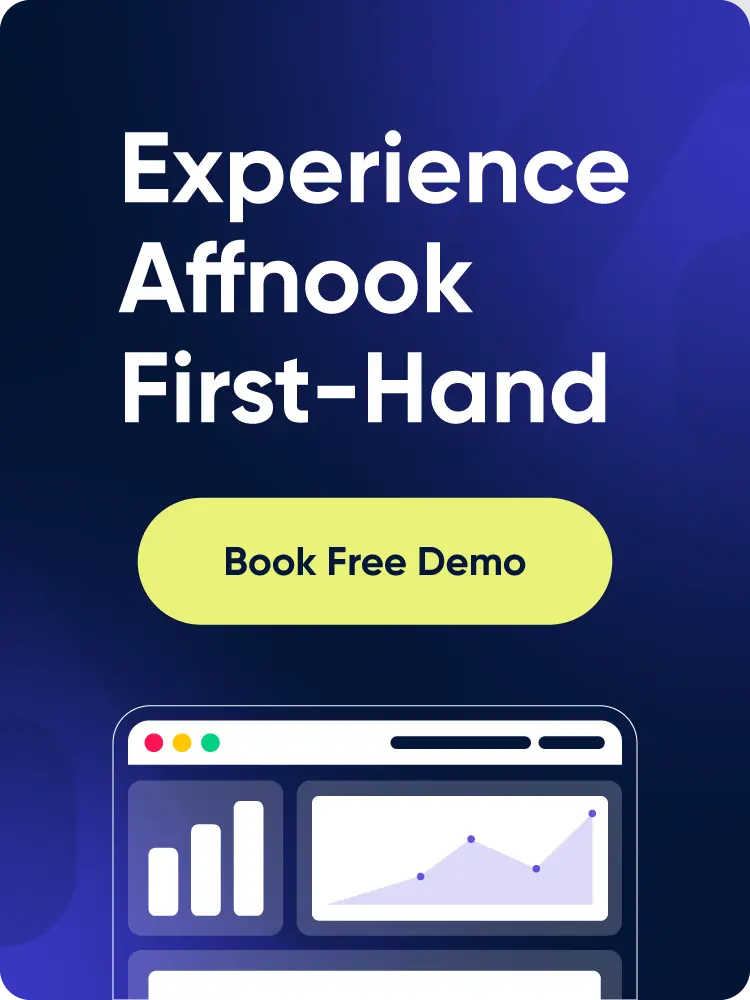If you’re into iGaming affiliate marketing, an iGaming operator is a crucial component of the ecosystem you should be aware of. Or maybe, you’re an iGaming operator looking for roles, responsibilities, and success metrics of an operator like yourself.
In this glossary, you’ll walk through the industry definition of an operator, its roles and responsibilities, the position of an operator in the iGaming industry, what success looks like for iGaming operators, and what is an affiliate marketing platform for operators.
So let’s walk you through.
What is an iGaming Operator?
iGaming operators operate the gambling platform, providing the betting experience to end users who are also known as players or gamblers. They manage mobile apps or websites that host gambling products like online casino, bingo, poker, casino games, online sports betting, sportsbook among others.
They are the digital equivalent of physical bookmakers at a traditional casino who take bets on live streaming of sporting events or other iGaming events. Some examples of operators are Bet365, 888 Casino, PokerStars, William Hill, Paddy Power Betfair, Sky Bet, etc.
Let’s take a deeper dive into the roles and responsibilities of an operator.

What Does an iGaming Operator Do?
iGaming operators essentially run multiple iGaming brands offering a variety of casino, poker, betting options to players through mobile apps and websites. Their primary KRA is to deliver exceptional experience to players on their platform. Other key responsibilities include, but are not limited to;
- iGaming Platform Management: Creating and managing an iGaming platform where players can register, deposit and place their bets on the games of their choice.
- Game Selection: Curate a list of games – casino, poker, bingo, gambling, slot machine, etc. their iGaming platform should include.
- Payment Processing: Managing withdrawals and deposits made by players on their platform.
- Customer Support: Managing queries and concerns of registered players.
- Marketing: Marketing their iGaming platform through different formats of marketing including affiliate marketing to boost player acquisition as well as retention. Managing data analytics and using player data to fine-tune their marketing strategies.
- Compliance & Regulation: Ensuring that their iGaming platform adheres to the local laws and regulations of the geographies they are operating in.
Structure of iGaming Industry And How Does An iGaming Operator Fit In
In 2025, the global iGaming market is projected to reach $269 billion, reflecting the industry’s rapid expansion and the increasing significance of operators within this ecosystem. Let’s understand the ecosystem in brief;
- iGaming Operators: An iGaming operator is a central component of the iGaming ecosystem. They are connected to all the other parts of this machinery to ensure smooth functioning of the business. An operator typically provides and maintains a platform for players to engage in gambling and betting activities.
- Game Providers: Game providers develop and supply the games like online casino, slots, table gamers, poker, bingo, roulette, etc. to iGaming operators.
- Payment Processors: Manage financial transactions between players and iGaming operators.
- Platform Provider: Platform providers manage and provide the technological infrastructure to run the iGaming platforms. They are an integral part of the iGaming business.
- Regulators: These are usually the government bodies ensuring that the iGaming activities are in compliance with the local laws and regulations.
- Affiliates: Affiliates or affiliate marketers are responsible for promoting iGaming brands in exchange for commissions.
- Players: Players on the other end of the iGaming ecosystem. They are the ones who place bets, withdraw money and make deposits on an iGaming platform managed by an iGaming operator.
KPIs for iGaming Operator Success
If you’re an operator, it’s important for you to know what metrics define your success. Here’s a list of KPIs that are mostly used to indicate the success of an iGaming operator.
- New Customer Acquisition: Number of new players onboarded on the iGaming platform within a specific period of time.
- Customer Acquisition Cost (CAC): Total amount spent on acquiring each player. This typically includes marketing and operational costs – affiliate commissions, ad spend, platform fee, cashback, rewards, etc.
- Player Retention Rate: Percentage of registered players who continue to engage with an iGaming platform.
- Churn Rate: Percentage of total players who stopped playing.
- Customer Lifetime Value (CLV): Total revenue generated by a registered player throughout his lifecycle with an iGaming brand.
- Gross Gaming Revenue (GGR): Total wagered amount on an iGaming platform minus the winning amount.
- Net Gaming Revenue (NGR): Gross gaming revenue minus the operating expenses, including platform fee, affiliate payout, etc.
- Average Revenue Per User (ARPU): An average revenue generated by each player.
- Bet Volume: Total amount of money wagered on an iGaming platform.
- Bet Size: Average amount of bet placed by each player.
- Conversion Rate: Total percentage of website visitors who convert to paying customers.
- Fraud Detection Rate: Percentage of fraud blocked by anti-fraud shield.
What Is An iGaming Affiliate Software for Operators?
For an iGaming operator to manage an iGaming platform smoothly, efficiently and profitably, they need a technical stack that includes an iGaming affiliate marketing software for operators. Affnook is one such iGaming affiliate software especially designed for iGaming operators to run their multi-brand affiliate marketing campaigns, optimize performance, manage affiliate payout, generate invoices, deter frauds and much more.
For an iGaming business to thrive sustainably in this competitive iGaming market, iGaming operators have to be supported with proper technological infrastructure, including a subscription-based affiliate marketing software for iGaming operators that doubles up as an affiliate management software, payout management software, invoice generation tool, anti-fraud shield, etc.
Help Section
1. What is an iGaming operator and how does it function in regulated markets?
An iGaming operator manages online gambling platforms, offering casino games, sports betting, or poker. They ensure compliance with local regulations, implement secure payment systems, and optimize player engagement while maintaining responsible gaming standards across jurisdictions.
2. How can an iGaming operator boost player retention and lifetime value?
iGaming operators can increase retention by offering personalized promotions, loyalty programs, and gamified experiences. Tracking player behavior and deploying targeted incentives encourages frequent engagement, higher deposits, and long-term loyalty in competitive regulated markets.
3. What technology infrastructure is essential for a successful iGaming operator?
A successful iGaming operator needs scalable platforms, real-time odds engines, secure payment gateways, fraud detection tools, and robust data analytics. Ensuring seamless performance and regulatory compliance is critical for global operations and player trust.
4. How do iGaming operators stay compliant with global gambling regulations?
Operators follow licensing requirements, anti-money laundering protocols, responsible gaming guidelines, and jurisdiction-specific rules. Regular audits, transparent reporting, and secure player verification processes ensure regulatory adherence and reduce legal and reputational risks.
5. What strategies can an iGaming operator use to attract high-value players?
Attracting high-value players involves VIP programs, exclusive promotions, targeted marketing campaigns, personalized communication, and premium experiences. Operators can leverage analytics to identify and nurture high-value segments, maximizing revenue and lifetime player value.




